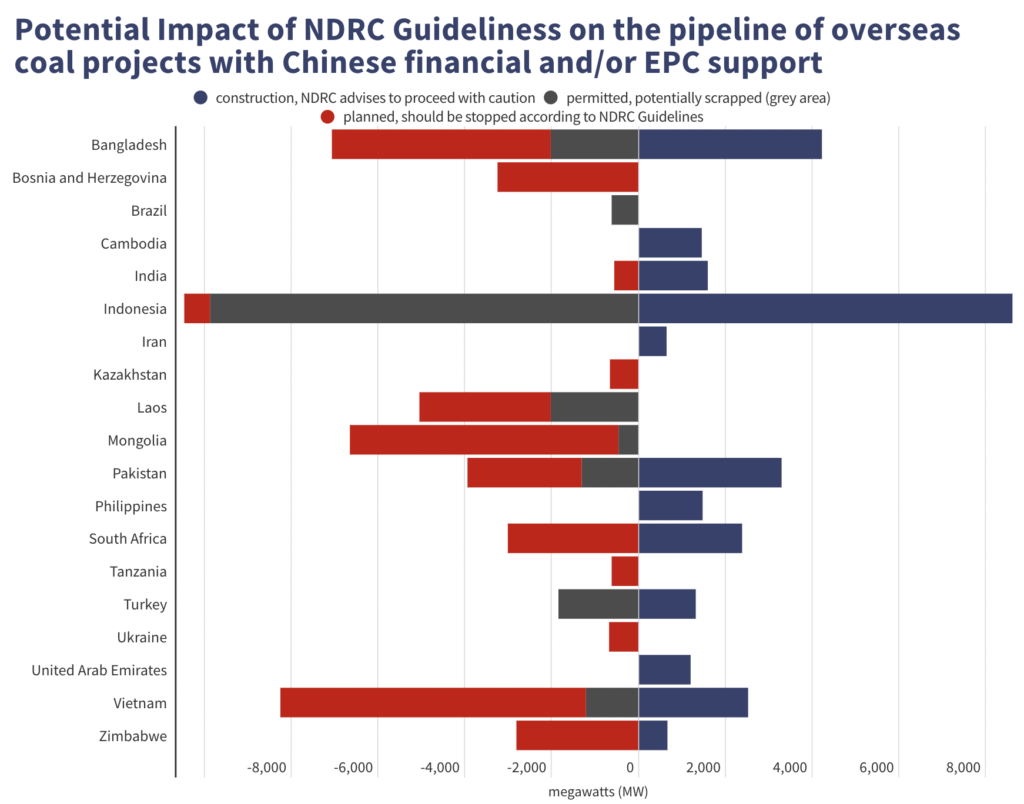In CRECA’s view, the newest NDRC Guidelines have the potential to stop 37 GW (32 plants) of overseas Chinese-backed coal projects in the pre-construction phase. There is also a recommendation that projects under construction proceed with “caution,” which should encourage the reexamination of 30 GW (36 plants) already under construction.
The guidelines also encourage upgrades to currently operating coal plants in line with “international green rules and standards,” which should encompass 17 GW (18 plants) of operating plants with Chinese equity. Overseas power plants have generally followed lax host country standards, emitting levels of pollution far higher than China’s domestic allowances.
In addition to the prior, the research group points out that 19.2 GW (18 projects) remain in a grey area of the pledge and could still go ahead.

“Of these, 11.2 GW are projects that have secured financing and the necessary permits but have yet to enter into construction. Another 8 GW are proposed captive coal projects linked to Belt and Road Initiative (BRI) nickel and steel complexes in Indonesia and considered a government priority,” the document reads. “Chinese firms were awarded equipment, procurement and construction contracts on two new captive power plants linked to BRI industrial complexes in Indonesia in 2022; this highlights a potential loophole, where EPCs on BRI industrial projects are treated as an exception.”
For the experts at the Centre for Research on Energy and Clean Air, transparency during implementation will be vital in assessing the depth of both China’s ambitions to promote green and sustainable developments and host countries’ commitment to transitioning their domestic power mix to net-zero by 2050.
“Key building blocks are already available for host countries and developers to smoothen the renegotiation process and avoid developing sunken assets, especially given the increasing number of withdrawals from Chinese firms who once pledged support on planned coal projects,” the report states. “Mechanisms such as early retirements and shifts to support overseas renewable energy will be necessary to meet country and global goals for a clean energy transition.”




